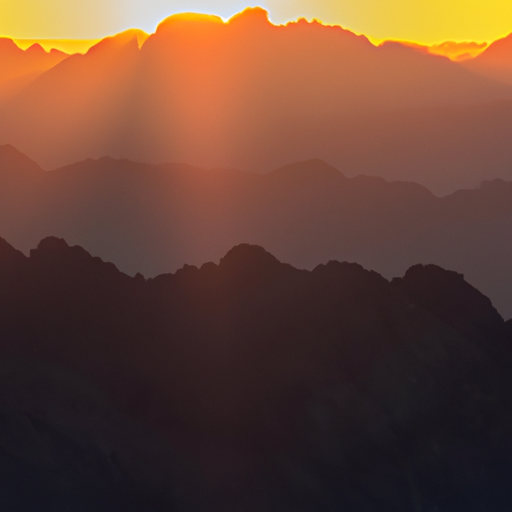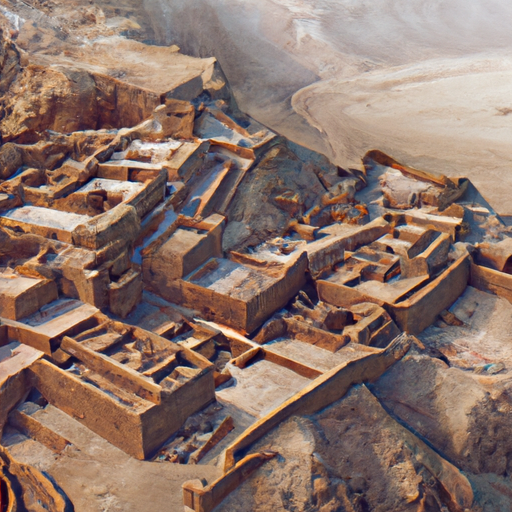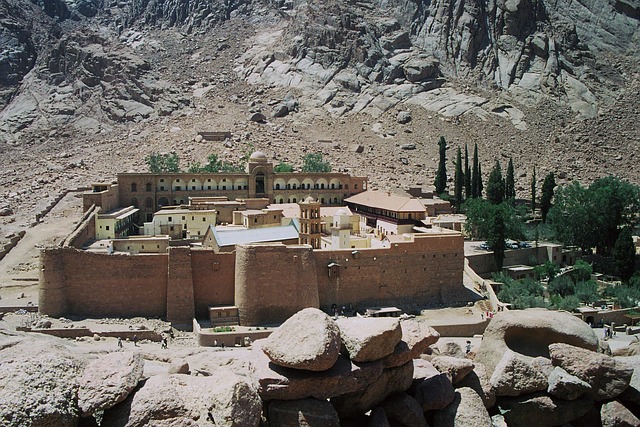Embark on a journey through time, from Mount Sinai to Masada, exploring the mountainous landscapes of Israel. This blog post will take you on an unforgettable tour, providing insights on historical, religious, and geographical aspects of these iconic sites.
1. 'In the Footsteps of Moses: The Significance of Mount Sinai'
Nestled in the heart of the Sinai Peninsula, Mount Sinai stands tall as a symbol of ancient biblical history and spiritual significance. This majestic mountain is believed to be the place where Moses received the Ten Commandments from God. For believers, a visit to Mount Sinai is a chance to retrace the footsteps of Moses and experience the profound sense of awe and reverence that comes with standing on sacred ground.
As you ascend the rugged slopes of Mount Sinai, you can't help but be struck by the sheer beauty of the surrounding landscape. The jagged peaks, the vast expanse of desert, and the ever-changing colors of the sky create a breathtaking panorama that captivates the senses. It's no wonder that this awe-inspiring setting has been a source of inspiration for countless artists, writers, and pilgrims throughout history.
Reaching the summit of Mount Sinai is no easy feat, but the reward is well worth the effort. As you stand atop this iconic mountain, you can't help but feel a profound sense of connection to the past. The silence and stillness of the surroundings invite contemplation and reflection, providing an opportunity for spiritual introspection and personal growth. Whether you are a person of faith or not, the experience of standing on Mount Sinai is undeniably powerful and transformative.
Beyond its religious significance, Mount Sinai also offers a unique opportunity to connect with nature and appreciate the raw beauty of the natural world. The rugged terrain, the sweeping vistas, and the sense of solitude all combine to create an unforgettable experience. It is a reminder that there are places on this earth that transcend human boundaries and remind us of our place in the vastness of the universe.

1. A breathtaking sunrise over Mount Sinai tour, illuminating the path taken by Moses.
2. 'What Can the Barren Landscapes of the Negev Desert Tell Us?'
The Negev Desert, with its vast stretches of barren landscapes, holds a wealth of knowledge and insights waiting to be discovered. This arid region in southern Israel may seem inhospitable, but it has a story to tell that goes beyond its harsh exterior.
One of the most striking aspects of the Negev Desert is its ability to sustain life in seemingly impossible conditions. The resilient flora and fauna that have adapted to survive in this harsh environment offer valuable lessons in adaptation and resilience. The sight of a solitary desert plant or a scurrying desert creature reminds us of the incredible ability of life to find a way, even in the most challenging circumstances.
The geological formations found in the Negev Desert provide a window into the Earth's history. The exposed layers of rock and sediment reveal the passage of time, allowing scientists and geologists to study the processes that have shaped our planet over millions of years. From ancient fossils to unique mineral formations, the Negev Desert holds clues to the Earth's past and provides valuable insights into our understanding of geological processes.
Beyond its scientific significance, the Negev Desert also holds historical and cultural importance. The desert is home to numerous archaeological sites, including ancient Nabatean cities, Byzantine monasteries, and Bedouin settlements. These remnants of past civilizations offer a glimpse into the rich history and cultural heritage of the region. Exploring these archaeological sites allows us to connect with the people who once called this desert home and gain a deeper understanding of their way of life.
3. 'Masada: A Testament to Jewish Heroism or a Symbol of Tragedy?'
Perched atop a towering plateau overlooking the Dead Sea, Masada stands as an enduring symbol of both Jewish heroism and tragic loss. This ancient fortress, built by King Herod, is steeped in history and has become a site of pilgrimage and reflection for visitors from around the world.
Masada's significance lies in the events that unfolded during the Jewish-Roman War in the 1st century CE. After the fall of Jerusalem, a group of Jewish rebels sought refuge within the walls of Masada, fiercely resisting the Roman army. Their defiance and determination to maintain their freedom and religious identity have elevated Masada to a symbol of Jewish heroism.
However, the story of Masada also carries a heavy weight of tragedy. As the Roman forces closed in, realizing that defeat was inevitable, the Jewish rebels made a heartbreaking decision. Rather than submitting to the Roman conquerors, they chose to take their own lives, believing it to be a preferable fate to capture and enslavement. This mass suicide, viewed by some as an act of martyrdom, has sparked ongoing debates about the morality and ethics surrounding such an extreme decision.
Today, Masada serves as a powerful reminder of the struggles and sacrifices made by the Jewish people throughout history. The site has been meticulously preserved, offering visitors a glimpse into the lives of those who once called this fortress their home. The rugged beauty of the desert landscape, combined with the haunting echoes of the past, creates an atmosphere of contemplation and reverence.

3. An aerial view of Masada's ruins, showing the isolated fortress atop the flat-topped mountain.
4. 'How Have These Mountainous Landscapes Shaped Israel's Identity?'
The mountainous landscapes of Israel have played a crucial role in shaping the country's identity. These natural formations, from the ancient Mount Sinai to the dramatic peaks of Masada, have not only provided a physical backdrop for significant historical events but have also become deeply intertwined with the cultural and religious fabric of the nation.
The towering presence of Mount Sinai, believed to be the place where Moses received the Ten Commandments, holds immense religious significance for Jews, Christians, and Muslims alike. This sacred mountain has become a symbol of divine revelation and spiritual connection. Its prominence in religious texts and its awe-inspiring presence in the desert landscape have contributed to Israel's identity as a land deeply rooted in faith and religious heritage.
Furthermore, the rugged and barren landscapes of the Negev Desert have shaped Israel's identity in profound ways. This vast expanse of arid land, with its rocky terrain and extreme weather conditions, has challenged and shaped the resilience of the Israeli people. It has fostered a sense of determination and adaptability, characteristics that have been essential in the nation's survival and development.
The mountain fortress of Masada, with its strategic location and tragic history, has also left an indelible mark on Israel's identity. The story of Jewish heroism and sacrifice at Masada has become a symbol of national pride and resilience. It has reinforced the idea of Israel as a nation that is willing to fight for its freedom and protect its cultural and religious heritage at all costs.
From the spiritual heights of Mount Sinai to the fortress of Masada, Israel's mountainous landscapes offer an enriching exploration. Each site tells a story, reflecting the rich tapestry of history, culture, and geography that makes Israel a fascinating place to visit. Whether you're a history buff, a nature lover, or a spiritual seeker, Israel's mountains offer a unique, multi-faceted experience that stays with you long after the tour ends.
